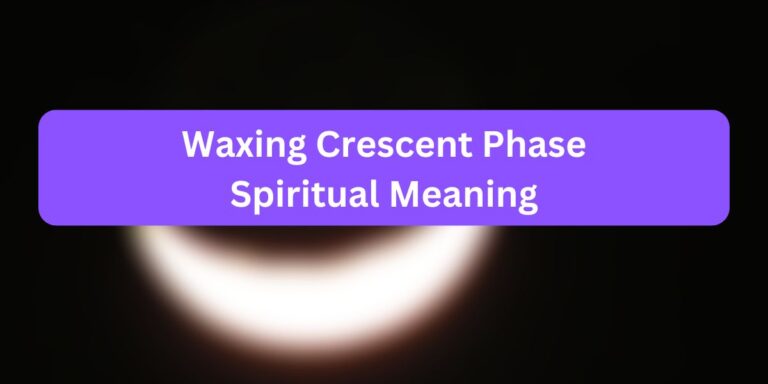The Power of Forgiveness: Finding Spiritual Meaning
Forgiveness is a complex and multifaceted concept that has been studied and debated for centuries. At its core, forgiveness is the act of letting go of feelings of anger, resentment, and the desire for revenge towards someone who has wronged us. It involves releasing the negative emotions and thoughts associated with the offense, and moving towards a place of understanding, compassion, and acceptance. Forgiveness does not mean condoning or excusing the behavior of the offender, nor does it require reconciliation with the person who has hurt us. Instead, it is a personal decision to free ourselves from the burden of carrying around negative emotions and to find peace within ourselves.
Forgiveness is often misunderstood as a sign of weakness or as a way of letting the offender off the hook. However, forgiveness is actually a powerful and courageous act that requires strength and resilience. It takes a great deal of inner strength to let go of the desire for revenge and to choose to respond with compassion and understanding instead. Forgiveness is not about denying or minimizing the harm that has been done, but rather about acknowledging the pain and choosing to move forward in a way that promotes healing and growth. It is a deeply personal process that can have profound effects on our mental, emotional, and spiritual well-being.
Key Takeaways
- Forgiveness is the act of letting go of resentment and anger towards someone who has wronged you.
- Forgiveness can lead to psychological and emotional benefits such as reduced stress, anxiety, and depression.
- Forgiveness is also considered a spiritual practice in many religions and can lead to inner peace and a sense of spiritual growth.
- Letting go of resentment and anger through forgiveness can lead to inner peace and a sense of healing from past hurts.
- Forgiveness plays a crucial role in relationships by fostering understanding, empathy, and a sense of connection between individuals.
The Psychological and Emotional Benefits of Forgiveness
The act of forgiveness has been shown to have numerous psychological and emotional benefits. Research has found that individuals who are able to forgive experience lower levels of stress, anxiety, and depression. By releasing negative emotions and thoughts associated with the offense, forgiveness can lead to greater emotional well-being and a sense of inner peace. Forgiveness has also been linked to improved relationships, as it can help to reduce conflict and promote greater understanding and empathy towards others.
Furthermore, forgiveness has been found to have positive effects on physical health. Studies have shown that individuals who are able to forgive have lower blood pressure, reduced risk of heart disease, and improved immune function. This is likely due to the fact that holding onto anger and resentment can have detrimental effects on the body, leading to increased levels of stress hormones and inflammation. By choosing to forgive, individuals can experience greater overall health and well-being.
Forgiveness as a Spiritual Practice
In many spiritual traditions, forgiveness is considered to be a central tenet of the faith. For example, in Christianity, forgiveness is seen as an essential part of following the teachings of Jesus Christ, who preached love, compassion, and forgiveness towards others. Similarly, in Buddhism, forgiveness is viewed as a way of releasing oneself from the cycle of suffering and finding inner peace. Many spiritual leaders and teachers have emphasized the importance of forgiveness as a way of promoting spiritual growth and enlightenment.
Forgiveness as a spiritual practice involves letting go of ego-driven desires for revenge and choosing to respond with love and compassion instead. It is about recognizing the interconnectedness of all beings and understanding that holding onto anger and resentment only serves to perpetuate suffering. By choosing to forgive, individuals can experience a greater sense of connection with others and with the divine, leading to a deeper sense of purpose and fulfillment in life.
Forgiveness and Inner Peace
| Metrics | Forgiveness | Inner Peace |
|---|---|---|
| Self-reflection | Ability to reflect on past actions and let go of resentment | Feeling of calmness and contentment within oneself |
| Emotional well-being | Reduction in negative emotions such as anger and bitterness | Ability to manage stress and anxiety |
| Interpersonal relationships | Improved communication and empathy towards others | Harmonious interactions and understanding with others |
| Health benefits | Lowered risk of heart disease and improved immune system | Lowered blood pressure and better sleep quality |
One of the most profound effects of forgiveness is its ability to bring about inner peace. When we hold onto anger, resentment, and the desire for revenge, we are constantly carrying around a heavy burden that weighs us down emotionally and spiritually. This can lead to feelings of anxiety, stress, and discontentment. However, by choosing to forgive, we can release this burden and find a sense of peace within ourselves.
Forgiveness allows us to let go of negative emotions and thoughts that are holding us back from experiencing true inner peace. It enables us to move past the pain and hurt that we have experienced and to find a sense of freedom from the past. By releasing the need for retribution and choosing to respond with love and compassion instead, we can experience a profound sense of peace that permeates every aspect of our lives.
Letting Go of Resentment and Anger
One of the key components of forgiveness is letting go of resentment and anger towards those who have wronged us. Holding onto these negative emotions only serves to perpetuate our own suffering and keeps us stuck in a cycle of pain and hurt. By choosing to forgive, we can release these toxic emotions and find freedom from the burden they create.
Letting go of resentment and anger is not always easy, but it is essential for our own well-being. When we hold onto these negative emotions, we are allowing the person who has hurt us to continue to have power over our lives. However, by choosing to forgive, we take back that power and free ourselves from the grip of these destructive emotions. This allows us to move forward with greater clarity, peace, and resilience.
Forgiveness and Healing

Forgiveness has been found to be a powerful tool for promoting healing after experiencing trauma or hurt. When we hold onto anger and resentment towards those who have wronged us, we are keeping ourselves stuck in a cycle of pain and suffering. However, by choosing to forgive, we can release these negative emotions and find a sense of healing and wholeness.
Forgiveness allows us to let go of the pain and hurt that we have experienced and move towards a place of understanding and compassion. It enables us to release the grip that the past has on our lives and find freedom from the burden it creates. By choosing to forgive, we can experience a profound sense of healing that permeates every aspect of our being.
The Role of Forgiveness in Relationships
Forgiveness plays a crucial role in promoting healthy and fulfilling relationships. When conflicts arise in relationships, it is natural for negative emotions such as anger, resentment, and hurt to surface. However, by choosing to forgive, individuals can release these toxic emotions and move towards a place of understanding and empathy.
Forgiveness allows individuals to let go of grudges and resentments that may be holding them back from experiencing true intimacy and connection with their partners. It enables them to move past conflicts and find greater harmony within their relationships. By choosing to forgive, individuals can promote greater trust, empathy, and love within their relationships, leading to deeper levels of intimacy and fulfillment.
In conclusion, forgiveness is a powerful tool for promoting mental, emotional, and spiritual well-being. By choosing to let go of anger, resentment, and the desire for revenge towards those who have wronged us, we can experience greater inner peace, healing, and fulfillment in our lives. Forgiveness is not always easy, but it is essential for our own well-being and for promoting healthy relationships with others. As we continue on our journey towards greater understanding and compassion, may we all find the courage to choose forgiveness as a way of promoting greater peace within ourselves and in the world around us.
Discover the spiritual significance of the black grasshopper and its symbolism in various cultures. In a related article, explore the deep spiritual meaning behind craving fish and its connection to inner fulfillment. Additionally, learn about the spiritual significance of a bird sitting on a windowsill and how it is believed to bring messages from the spiritual realm. For more insights into these fascinating topics, visit Spiritual Graph.
FAQs
What is the spiritual meaning of “and so it is”?
The phrase “and so it is” is often used in spiritual contexts to affirm the truth of a statement or intention. It is a declaration of faith and belief in the manifestation of a desired outcome.
How is “and so it is” used in spiritual practices?
In spiritual practices, “and so it is” is often used as a way to seal a prayer, affirmation, or intention. It is believed to solidify the energy and power of the spoken word, reinforcing the belief that what is spoken will come to fruition.
What is the significance of “and so it is” in spiritual teachings?
In spiritual teachings, “and so it is” is seen as a way to align one’s thoughts, words, and actions with the desired outcome. It is a reminder to stay focused on positive intentions and to trust in the universal forces at work.
Can “and so it is” be used in non-spiritual contexts?
While “and so it is” is primarily used in spiritual contexts, it can also be used in a more general sense to affirm the truth or validity of a statement. However, its spiritual connotations may still be present for some individuals.






